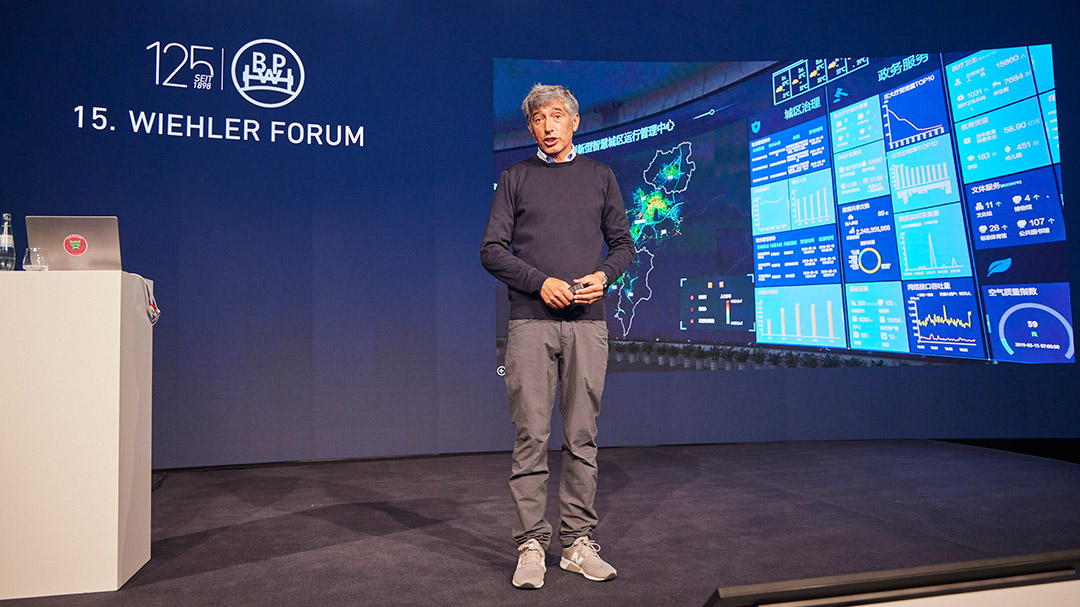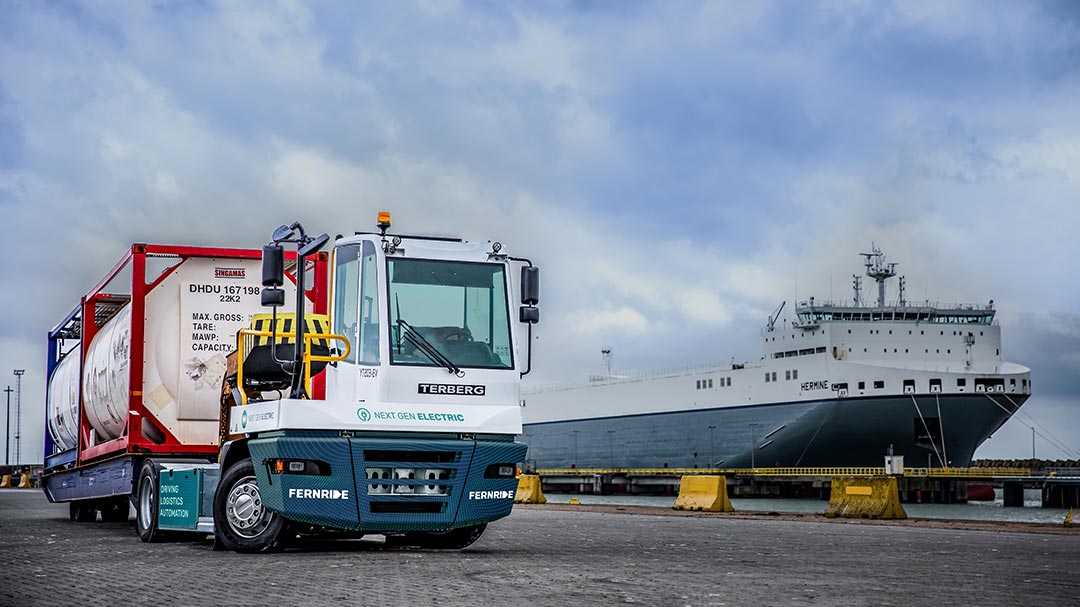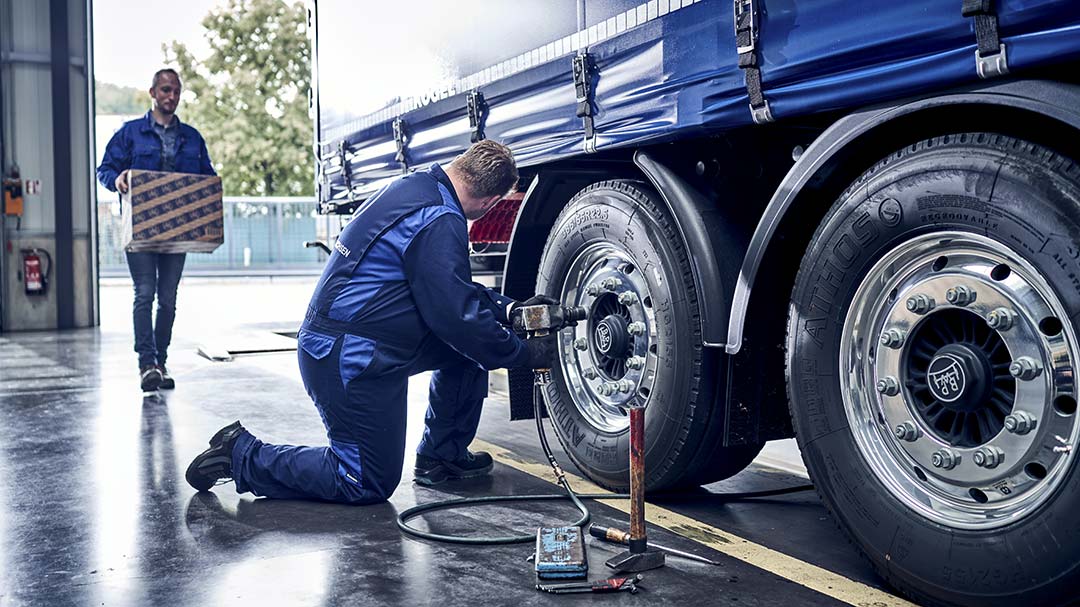Reading time: approx. 9 minutes
Text: Juliane Gringer
Photos: Adobestock Svyatoslav Lypynskyy, Rhenus SE & Co. KG, Dierk Kruse, Helmut Baldus GmbH
Logistics is the backbone of the German economy but many restrictions and regulations make work difficult for the industry’s entrepreneurs. Three logistics experts clearly state on motionist.com what they expect from politics.

Sascha Hähnke, Managing Director,
Rhenus Transport:
‘Are we the drivers or the driven?’

Hubertus Kobernuss, former owner of Jürgen Kobernuss Spedition, member of the supervisory board of the Federal Association of Road Haulage and Logistics (Bundesverband Güterkraftverkehr und Logistik, BGL) and Vice President of the General Transport Industry Association in Lower Saxony (Gesamtverband Verkehrsgewerbe Niedersachen e.V., GVN):
‘These grievances should not exist at all in a united Europe.’

Maximilian Baldus, Managing Director and Personnel Manager, Helmut Baldus:
‘I want more Europe and less small-state mentality.’
Sascha Hähnke, Managing Director of Rhenus Transport: ‘To be honest, the only positive thing at the moment is that there seems to be money available since funding has been promised for several areas. Although we must not pretend that the money is a gift – as I understand it, we paid for it ourselves through taxes and the truck toll. Apart from that, I can’t think of much good at this stage unfortunately. As an entrepreneur, I currently have a lot to do with the topic of digitisation, as was the case last year, too. This results in costs and ties up resources. At the same time, we are still struggling with a shortage of drivers and there are too few parking spaces for trucks. Then there’s the fact that we, as an industry, must also deal with alternative drive systems. I am always asking myself if we’re the drivers or the driven? I would be happy to be the driven – that would be the case if we had any political indication as to which direction we are going in, and if the big manufacturers were also sending us in the right direction. But unfortunately it’s the other way round: we have to drive both politics and the manufacturers. This is a big challenge.
Unbureaucratic and rapid funding
»Alternative drives are not a matter of faith; there are simply no alternatives.«
Use all available alternative drives
What’s more, the whole thing must happen much quicker. Clear signals have been missing so far: we have a toll exemption that is time-limited and will expire at the end of the year – as things stand today. There is no longer an incentive to buy gas-powered vehicles and the option of special depreciation for electric vehicles is limited to 7.5 tons. We have no planning certainty. It is absolutely impossible to refer to any recommendations: we have to investigate the matter ourselves and then make a decision. The industry finds this difficult.
Annoy your local politicians!
Changes in favour of the economy and the population
Hubertus Kobernuss, former owner of Jürgen Kobernuss Spedition, member of the supervisory board of the Federal Association of Road Haulage and Logistics (Bundesverband Güterkraftverkehr und Logistik, BGL) and Vice President of the General Transport Industry Association in Lower Saxony (Gesamtverband Verkehrsgewerbe Niedersachen e.V., GVN): ‘Despite all the criticism I level at our legal system, at controlling bodies or even at the laws or regulations themselves, to my mind, Germany is still a model for the functionality of a constitutional state. Even though I myself am subject to these controls to a large extent and am also punished if I make mistakes, I know that everyone else is treated in the same way. Nevertheless, there are many things that I would simply like to change in favour of the economy and the population. After all, both profit to a great extent when the economy and logistics are doing well.
On the one hand, we have a national regulatory framework for commercial goods transport via the Road Haulage Act (Güterkraftverkehrsgesetz, GüKG), but the so-called Polish sprinters – small vans from Eastern Europe that transport piece goods at rock-bottom prices – utterly distort competition in my opinion. They are not covered by the GüKG, and thus neither the EU social regulation applies to them nor is there a regulatory framework for them. I believe this to be a problem that must be solved. We still have very clear rules of the game when it comes to national fiscal policy, but these are partly circumvented by the fact that companies here in Europe choose the state in which corporate taxation is lowest. Illegal cabotage undermines the regulatory framework, and with taxation comes competition. This in turn goes hand in hand with deficits in the social sphere, for example with regard to wage differentials between individual states. Monitoring the regulatory framework is also a problem since it is sometimes interpreted in different ways: there are already countries that carry out monitoring for the benefit of their own companies. The controls are sometimes so lax that hauliers can carry out cabotage without the risk of being caught. And should they be caught by way of exception, they only expect minor penalties.
»I believe that this is not only an injustice, but that these grievances should not exist at all in a united Europe.«
Significant differences across Europe
Equal rights for all controlling bodies
Harmonising the competition
Maximilian Baldus, Managing Director and Personnel Manager of Helmut Baldus GmbH: ‘I think that harmonising the competition should be the current focus of political work. It’s great that the transport sector and the European market are very free, but at the same time it means that, at the moment, the cost leader is the one who has the cheapest drivers, vehicles or political conditions – while everyone is competing in the same market. After all, there are certain goods streams in Europe that are only served by certain nationalities. However, in the spirit of the free market economy, the entrepreneur enjoying the best market performance should survive, not the one with the cheapest personnel, who may then live in the truck for weeks or months. I want more Europe and less small-state mentality.
Innovative strength for medium-sized businesses
»Instead of subsidies, better framework conditions would help us to meet these challenges: a reduction in bureaucracy and standardisation across Europe, too.«
More money for courageous decisions
It’s just an idea but we could set a minimum price for transport, bearing in mind the need for climate protection. I am very liberal and certainly do not want a planned economy, but such an approach could enable companies to avoid unrealistic, utopian transport prices being created by pure market speculation and everything being driven around at practically rock-bottom prices. And it would ensure the haulier who makes the trip has a margin that also allows them to be innovative on a small scale and invest in things that keep their company viable for the future. We could step away from day-to-day business and focus more on strategy, rather than worrying about everyday life and constantly adapting to bureaucratic changes.







